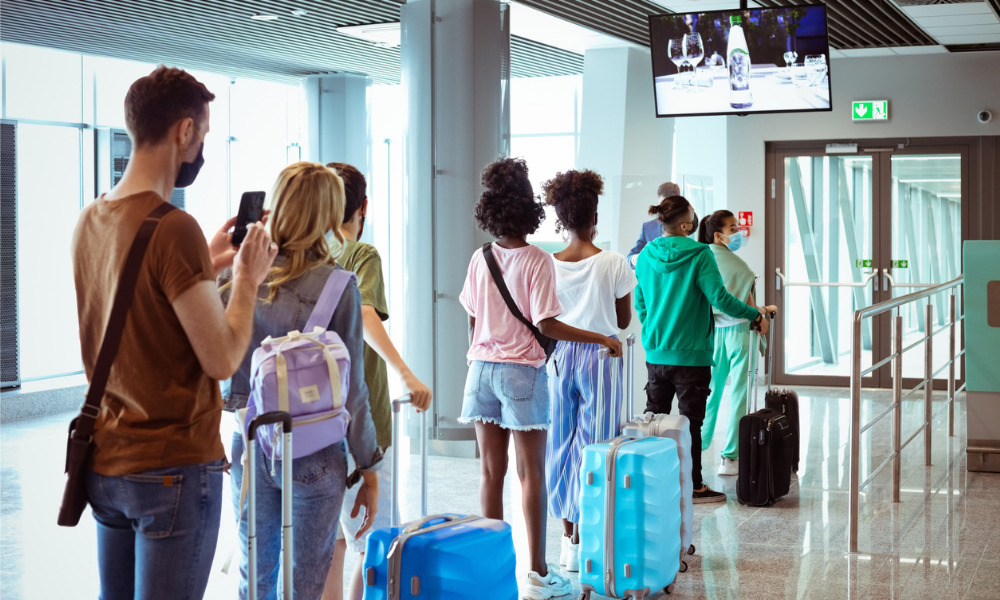
Prime Ministers says move, which will cost government $55 million, will be key in fixing nationwide talent drought

Prime Minister Scott Morrison has announced the government is planning to rebate the visa application fees of students and backpackers in a bid to entice more workers to the country. Australia is currently suffering from a worker shortage – a crisis only being made worse by the rising Omicron threat.
"What we'll be doing is rebating the visa application fees from all those who arrive today – today and going forward - for students over the next eight weeks, and that is a fee of some $630," Morrison told the media.
According to the prime minister, there are approximately 150,000 students with visas – talent he’s encouraging to come back and start their university years in Australia.
"That is a thank you to them for coming back and continuing to choose Australia," he added. "But we also want them to come here and be able to start filling some of these critical workforce shortages."
In particular, Morrison mentioned that the critical workforce shortage in health care and aged care will need to be filled.
"So, visa application fees rebated when you arrive in Australia, and that will be done through the Department of Home Affairs and that will be eight weeks from today." he said.
The prime minister also announced a similar scheme for backpackers, where he said there are about 23,500 of them who have visas to come to Australia.
"Come on down now,” he implored, “because you’re wanted [in] Australia, you’ve got your visa. We want you to come to Australia and enjoy a holiday here… move all the way, all the way around the country, and at the same time join our workforce," Morrison urged.
Read more: Skills shortage is crippling Australia - here's how to plug the gaps
He said the backpackers could help in the agricultural sector, hospitality sector, as well as other parts of the economy that rely on the workforce.
"For backpackers, it will be 12 weeks, 12 weeks from today. If they turn up within the next 12 weeks, they will get their visa application fee rebated by the Department of Home Affairs," said the prime minister.
The rebate scheme is expected to cost the government a total of $55 million, according to Treasurer Josh Frydenberg. Australia has reopened its borders for foreign students and skilled workers back in December despite the threat of the Omicron variant. Back then, it was also expected to ease workforce shortage among businesses in the country.
The Australia Chamber of Commerce and Industry (ACCI) welcomed the announcement from the prime minister, saying that working holiday makers make up a substantial part of the workforce, while international students will be "fundamental" in economic recovery.
"The rebates announced today will be critical in filling labour and workforce gaps, particularly in our tourism and hospitality industries," said ACCI chief executive Andrew McKellar.
However, the chamber called on the government to lift the ban on international arrivals in order to further recovery for businesses.
"We must immediately end the ban on international tourists, business travellers and other barred international arrivals, to support those businesses that are reliant on these arrivals," said McKellar.
"Businesses reliant on international travellers are only just holding on with very little government support to keep them going. They are desperate for some good news."
Aside from the Omicron variant ailing the workforce, employers are also struggling to maintain talent, with a mass exodus expected later this year. Research from Qualtrics found that 40% of employees are planning to leave their jobs in search of growth opportunities and flexible working arrangements.
But where does this leave Australian HR leaders? Well, according to recent research, it’s time to start developing the talent you already have. Steve Bennetts, psychologist and head of growth & strategy for employee experience at Qualtrics, revealed that upskilling will be key in beating the Great Resignation.
"This willingness to learn and grow among workers in Australia must be cultivated and acted on by employers and is an opportunity to close talent gaps by reskilling the workforce," he explained. "To do this effectively, employers need to work with their people to identify their goals and aspirations, and then deliver the programs and frameworks helping achieve them.”